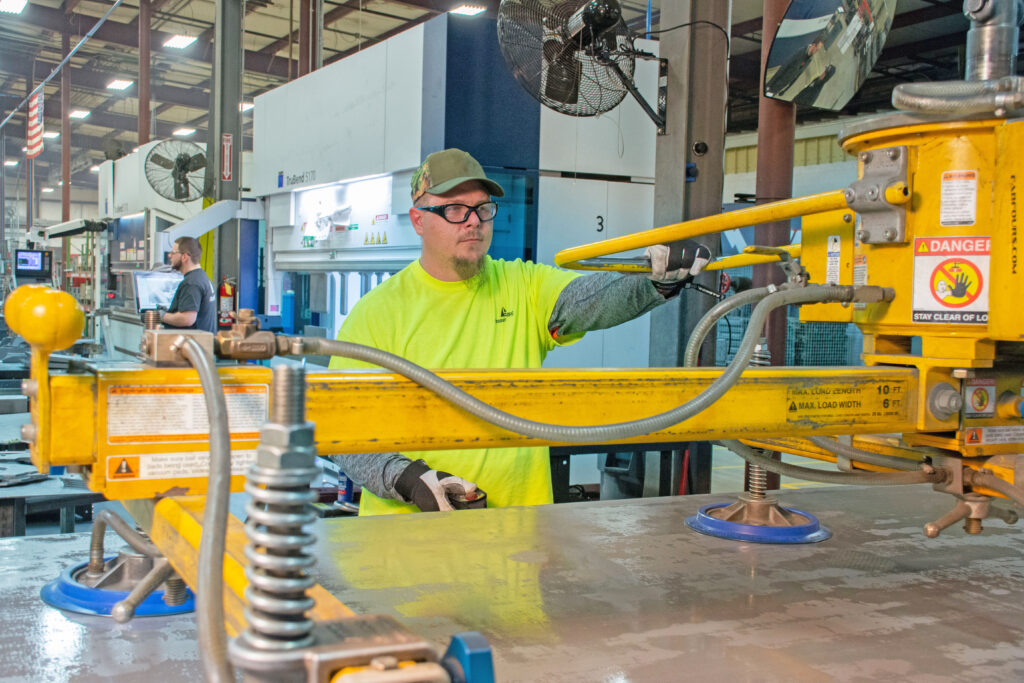Machine Operator Careers: Complete Guide to Jobs, Salaries, and Requirements in 2025
Machine Operator Careers: Complete Guide to Jobs, Salaries, and Requirements in 2025
Machine operators play a crucial role in America's manufacturing and industrial sectors, operating equipment that keeps production lines moving efficiently. Whether you're considering this career path or looking to advance in the field, understanding the current job market, salary expectations, and requirements is essential for success.

What Does a Machine Operator Do?
Machine operators are skilled professionals who control, monitor, and maintain various types of industrial equipment. Their primary responsibilities include setting up machinery, monitoring production processes, performing quality checks, and ensuring equipment operates safely and efficiently. These workers are found across multiple industries, from manufacturing and warehousing to construction and food processing.
Key daily tasks include:
- Operating forklifts, conveyor systems, and specialized manufacturing equipment
- Conducting routine maintenance and minor repairs
- Reading technical manuals and following safety protocols
- Monitoring production output and quality standards
- Collaborating with supervisors and maintenance teams
Machine Operator Salary and Compensation
Machine operator salaries vary significantly based on location, experience, and industry specialization. According to recent data from major employment platforms, here's what you can expect to earn:
National Average Salaries
The average hourly wage for machine operators in the United States ranges from $18.19 to $19.21 per hour, translating to approximately $37,800 to $39,950 annually. Entry-level positions typically start around $16.35 per hour, while experienced operators can earn up to $23.56 per hour.

Highest-Paying Machine Operator Specializations
Specialized roles command premium wages:
- Crane and Tower Operators: $66,370 annually
- Hoist and Winch Operators: $52,310 annually
- CNC Machine Operators: $45,000-$55,000 annually
- Industrial Truck Operators: $46,390 annually
Top-Paying Cities for Machine Operators
Geographic location significantly impacts earning potential. The highest-paying cities include:
- Nome, AK - $46,924 annually
- Berkeley, CA - $46,317 annually
- Redwood City, CA - $46,313 annually
- San Carlos, CA - $45,675 annually
- Sitka, AK - $45,569 annually
Education and Training Requirements
Most machine operator positions require minimal formal education, making this an accessible career path for many workers. Here's what you need to know:
Basic Requirements
- Education: High school diploma or equivalent preferred
- Training: On-the-job training typically lasting 1-4 weeks
- Certifications: OSHA safety training often required
- Physical Requirements: Ability to lift 50+ pounds and stand for extended periods

Specialized Training
Certain roles require additional training:
- Forklift Operation: Certification required (2-3 days training)
- Crane Operation: State licensing may be required (several months training)
- Hazardous Materials: Additional safety certifications
Job Outlook and Career Growth
The machine operator job market presents mixed opportunities. While overall employment growth is projected at just 1% through 2034 (slower than average), approximately 83,200 job openings are expected annually due to worker turnover and retirement.
Industries with Strong Demand
- Warehousing and storage (36% of jobs)
- Wholesale trade (12% of jobs)
- Food manufacturing (6% of jobs)
- E-commerce fulfillment centers
- Automotive manufacturing

Essential Skills for Success
Successful machine operators possess a combination of technical and soft skills:
Technical Skills
- Mechanical aptitude and troubleshooting abilities
- Understanding of safety protocols and OSHA regulations
- Basic computer skills for modern equipment interfaces
- Quality control and inspection techniques
Soft Skills
- Attention to detail and focus
- Communication skills for team coordination
- Physical stamina and hand-eye coordination
- Problem-solving capabilities
How to Get Started as a Machine Operator
Breaking into the machine operator field is straightforward with the right approach:
- Complete high school or obtain GED
- Apply for entry-level positions at manufacturing companies, warehouses, or distribution centers
- Complete on-the-job training provided by employers
- Obtain necessary certifications (forklift, OSHA safety)
- Gain experience and consider specializing in high-demand areas

Frequently Asked Questions
What is the starting salary for a machine operator?
Entry-level machine operators typically earn between $14.85-$16.35 per hour, or approximately $30,900-$34,000 annually. With experience, earnings can reach $24.84 per hour or more.
Do machine operators work full-time?
Yes, most machine operators work full-time schedules. Many positions require 40+ hours per week, and some involve overnight or rotating shifts to maintain 24/7 operations.
What industries hire the most machine operators?
The largest employers are warehousing and storage facilities (36%), wholesale trade (12%), temporary staffing agencies (6%), and food manufacturing (6%).
Is formal education required?
While not always required, most employers prefer candidates with a high school diploma or equivalent. The primary qualification is completing employer-provided training programs.
Future of Machine Operator Careers
Technology is reshaping the machine operator landscape. While automation may reduce some traditional roles, new opportunities emerge in:
- Automated systems monitoring and maintenance
- Robotics operation and programming
- Quality control and inspection roles
- Equipment troubleshooting and repair
Workers who adapt to technological changes and pursue continuous learning will find the best career opportunities in this evolving field.
Ready to Start Your Machine Operator Career?
Machine operator positions offer stable employment, competitive wages, and opportunities for advancement without requiring extensive formal education. With proper training and dedication, you can build a rewarding career in this essential field.
Share this comprehensive guide with others considering machine operator careers and help them make informed decisions about their future!

